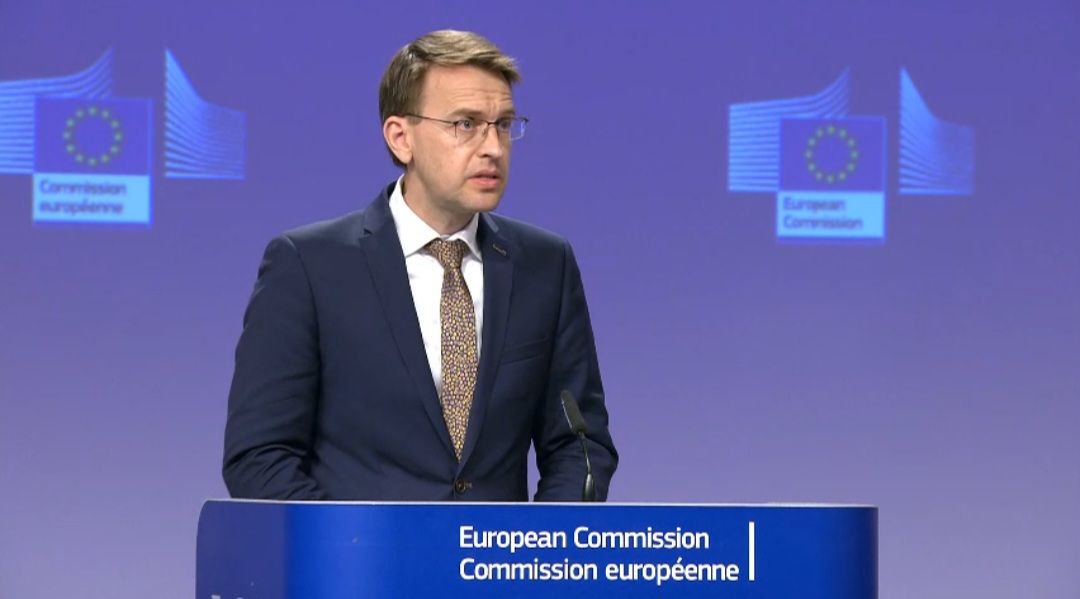BAKU, Azerbaijan, July 1. The Enhanced Partnership and Cooperation Agreement (EPCA) will provide a new, modern, and ambitious framework to step up the EU-Uzbekistan partnership, promoting cooperation and regulatory convergence in areas that are relevant to the reform processes underway in the country, the European Commission’s lead spokesperson for foreign affairs and security policy, Peter Stano told Trend in an exclusive interview.
“Negotiations for a new Enhanced Partnership and Cooperation Agreement (EPCA) were concluded in summer 2022, and the Agreement is currently being prepared for signature and entry into force. The agreement covers areas such as political dialogue and reforms, the rule of law, justice, freedom and security, human rights, migration, trade, and economic and sustainable development. It will promote a favorable business and investment environment. It also foresees closer cooperation on foreign policy issues and global challenges such as climate change, corruption, and the fight against terrorism,” he said.
Peter Stano noted that once the new EPCA enters into force, it will allow the EU and Uzbekistan to boost their cooperation across a wide range of areas, including political cooperation and reforms. The agreement puts a strong emphasis on shared values, democracy and the rule of law, human rights, fundamental freedom, and sustainable development.
“The agreement also provides enhanced cooperation in foreign and security policy, with a focus on regional stability and international cooperation, non-proliferation of weapons of mass destruction, conflict prevention, and crisis management. It also covers justice, freedom, and security cooperation, providing data protection, migration, the fight against money laundering and terrorism, organized crime and corruption, tackling illicit drugs, as well as judicial cooperation and consular protection,” he emphasized.
The Commission’s lead spokesperson for foreign affairs and security policy stressed that EPCA ensures a better regulatory environment for economic operators in areas such as trade in goods and services, state-owned enterprises, procurement, and intellectual property rights. Moreover, the agreement ensures enhanced cooperation in a number of other key policy areas, including economic and financial cooperation, energy, transport, environment and climate change, digital economy, agriculture and rural development, employment and social affairs, culture, education and youth, and research.
He also stressed that the EU’s support for the transition to a modern agri-food system has been one of the most crucial sectors in cooperation with Uzbekistan since its start.
“The European Union is the main provider of grant funding to the agri-food sector in Uzbekistan, through which support is being provided on reforms that enable farmers to prosper, to adapt to a changing climate, to protect the environment, to produce healthy food, and to become part of local and global value chains. In addition to the 30 million euros of grants to be disbursed between 2024 and 2027, the EU has already supported the reform with a budget of 32.5 million euros for the sector between 2020 and 2023,” Peter Stano noted.
According to him, at the Investors Forum for EU-Central Asia Transport Connectivity, which took place in Brussels in January 2023, the European Union announced an overall commitment to invest 10 billion euros in sustainable transport connectivity in Central Asia, based on contributions from international partners present at the Investors Forum.
“These investments will aim to deliver 33 hard infrastructure needs and 7 soft connectivity key actions, which were identified in the June 2023 study on Sustainable Transport Connections between Europe and Central Asia, which was led by the European Commission and conducted by the European Bank for Reconstruction and Development. The delivery of these actions will greatly enhance the operational efficiency and economic attractiveness of the trans-Caspian transport networks, boosting regional connectivity and economic growth in Uzbekistan as well as other Central Asian countries,” the representative of the European Commission emphasized.
He also added that support for the green and energy transition is one of the four EU Global Gateway Flagship initiatives in Central Asia, which is implemented through the regional Team Europe Initiative on Water, Energy, and Climate Change. Within this framework, the EU funds a regional program on Support to Sustainable Energy Connectivity in Central Asia that operates in the five Central Asian countries (Kazakhstan, Uzbekistan, Tajikistan, Kyrgyzstan, and Turkmenistan) with the aim of ensuring the establishment of a sustainable energy mix in the region through increased capacities on Energy Efficiency and Renewable Energy deployment and an environment conducive to investments in renewable energy projects.







